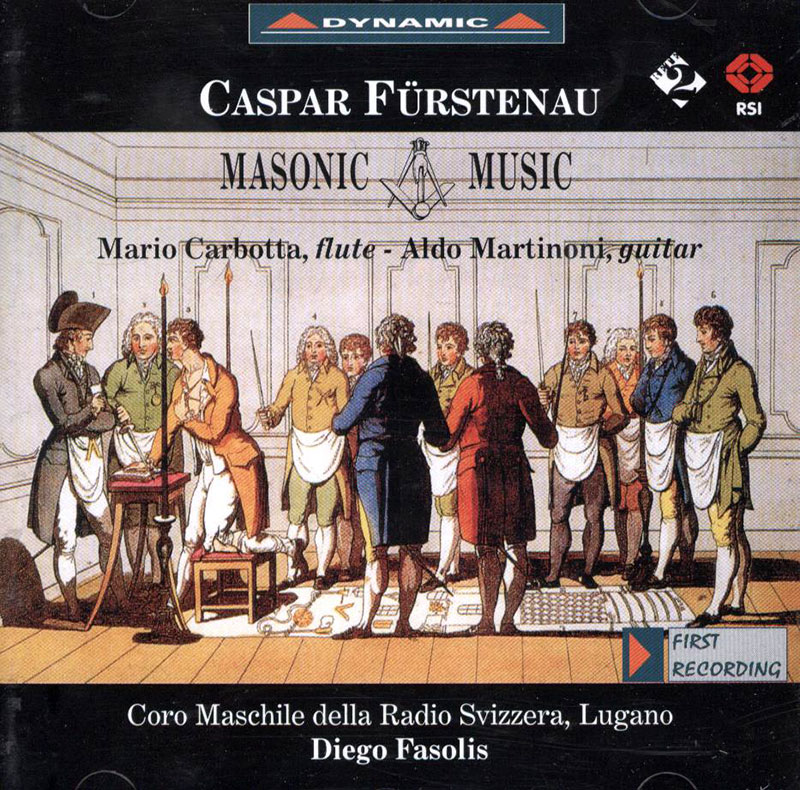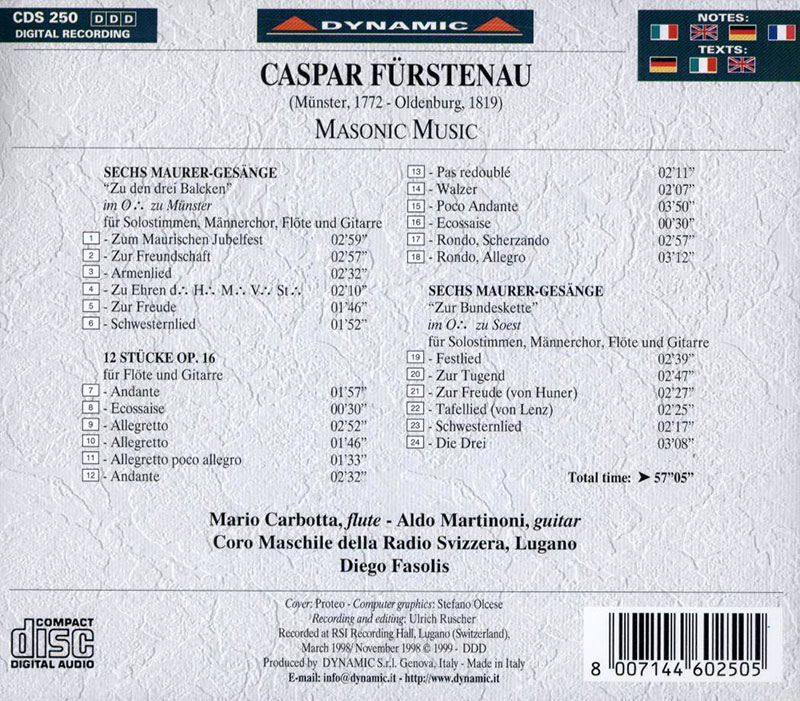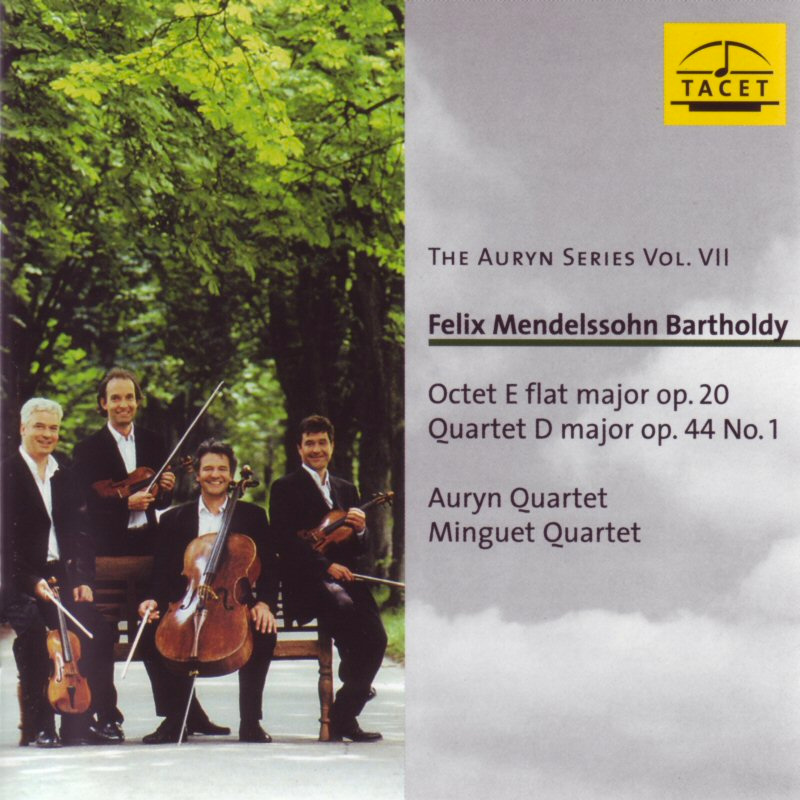Logowanie
Dziś nikt już tak genialnie nie jazzuje!
Bobby Hutcherson, Joe Sample
San Francisco
SHM-CD/SACD - NOWY FORMAT - DŻWIĘK TAK CZYSTY, JAK Z CZASU WIELKIEGO WYBUCHU!
Wayne Shorter, Freddie Hubbard, Herbie Hancock, Ron Carter, Elvin Jones
Speak no evil
UHQCD - dotknij Oryginału - MQA (Master Quality Authenticated)
Chesky! Niezmiennie perfekcyjny
Winylowy niezbędnik
ClearAudio
Double Matrix Professional - Sonic
najbardziej inteligentna i skuteczna pralka do płyt winylowych wszelkiego typu - całkowicie automatyczna
FURSTENAU, RTSI Choir of Lugano, Diego Fasolis
Masonic Music

- RTSI Choir of Lugano - choir
- Diego Fasolis - conductor
- FURSTENAU
Caspar Fürstenau’s output is almost exclusively dedicated to the flute, and includes, among other works, two Flute Concertos, and a great number of chamber works where the flute is often found associated with the guitar. We do not know precisely when and where Caspar joined the Freemasonry; but the presence in his catalogue of two collections of Maurer Gesänge leaves no doubts as to his participation in the activities of the lodges Zu den drei Balcken of Münster and Zur Bundeskette of Soest. Between the end of the 1700s and the beginning of the 1800s the Freemasonry had many followers among musicians, especially in the countries of German language and in France. The two collections of Maurer Gesänge by Caspar Fürstenau are structurally identical, each consisting of six songs for solo voice, male choir, flute and guitar. The songs have a very simple strophic structure, with passages for solo voice that are taken up in various ways by the choir. The flute provides short introductions and contrapuntal accompaniment to the singing, while the guitar contributes with solid or arpeggiato chords. The vocal quality of these pieces, slightly recalling that of Mozart’s Masonic cantatas, is sober and syllabic, with some popular inflections. The texts offer typical 18th-century Masonic themes, with an accent on egalitarian ideals, universal brotherhood, individual virtue, and friendship. Of particular interest are the two pieces from the two collections that share the same title although they are substantially different: Schwestern Lied (Sisters’ song). Among the numerous collections of pieces for flute and guitar composed by Caspar Fürstenau, the 12 Stücke Op.16 stand out for their pleasant writing and fresh music ideas, always expressed in very classical style. They are dances (Ecossaises, Walzer, Pas redoublé) and simple pieces where flute and guitar dialogue amiably. It is fine Hausmusik destined for private performances by family members and friends.




































